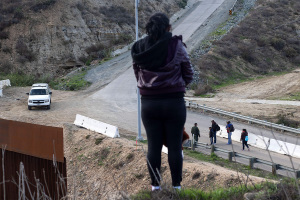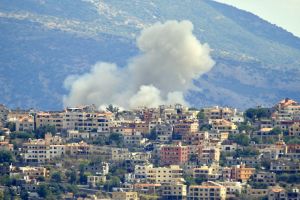International Survey Finds Positive Outlook on Religion
A recent international poll on religion found that most worshippers, even in war-torn areas of the world, see politics rather than religion as the cause of violence and strife. The survey, conducted by William Scott Green, professor of religion at the University of Rochester, showed that most people viewed religion in a positive light.
"If you look at Israel and India, where there is violence that we associate with religion, the majority of people in both of those places say that the violence is political rather than religious," Scott Green said.
"That's a very important result [because] we didn't ask them if it's associated with their own religion, we just asked the generic question, so that the judgment that the violence is political rather than religious is a judgment in principle about their own religion and about their neighbor's religion," Scott Green added.
John Zobgy, whose Utica, N.Y-based international polling firm conducted the research together with staff of the University of Rochester from January through March of this year, said the study found that religion is extremely important to its adherents worldwide.
"It's a very private and personal sort of thing, as well as a familial thing. Most people in most countries told us that they learn their religious values and principles from a parent, from a grandparent or from someone within their own family.
"Fewer told us of the importance of religious leaders among most of the religions that we surveyed," Zogby said.
"We have a tendency - and I think here in the States especially - to see religion from the point of view of the most intense leaders and most intense followers utilizing religious symbols for their own political ends, whereas in reality, the people we polled do not see religion intersecting with politics or government but see it mainly as a personal thing, a code of ethics, a measurement for how well they are doing in their society," Zogby continued.
600 people were interviewed in India, Peru, Russia, Saudi Arabia and South Korea. In each nation, the two major religions were taken into account. Christians from South Korea, Orthodox Christians in Russia, and Catholics in Peru accounted for nearly half those questioned. 593 Jews, Muslims and Druze in Israel; and 795 Catholics and Protestants in the United States were interviewed as well.
Among all those groups, all, except Russian Orthodox Christians felt that being actively religious is more important than being politically active.
To the question, "Should there be more religion in your society?” According to Zogby, "majorities in most countries said yes, which is not a mandate for extremism as it is more a desire to inject what people consider as very positive in their lives into the values of their society as a whole,.”
The poll also found that most American Catholics and mainline Protestants don't hold exclusive views about their religions. 95 percent of Catholics and 92 percent of mainstream Protestants interviewed regard people of other religions as equal to them. Sixty-three percent of Catholics and 61 percent of Protestants surveyed say their religion is but one of many paths to God.
"People believe that a more religious society - we didn't ask about a more religious government, but a more religious society - will help their country, so on a national and religious measure, people think religion will do more good than harm," Scott Green said.




























